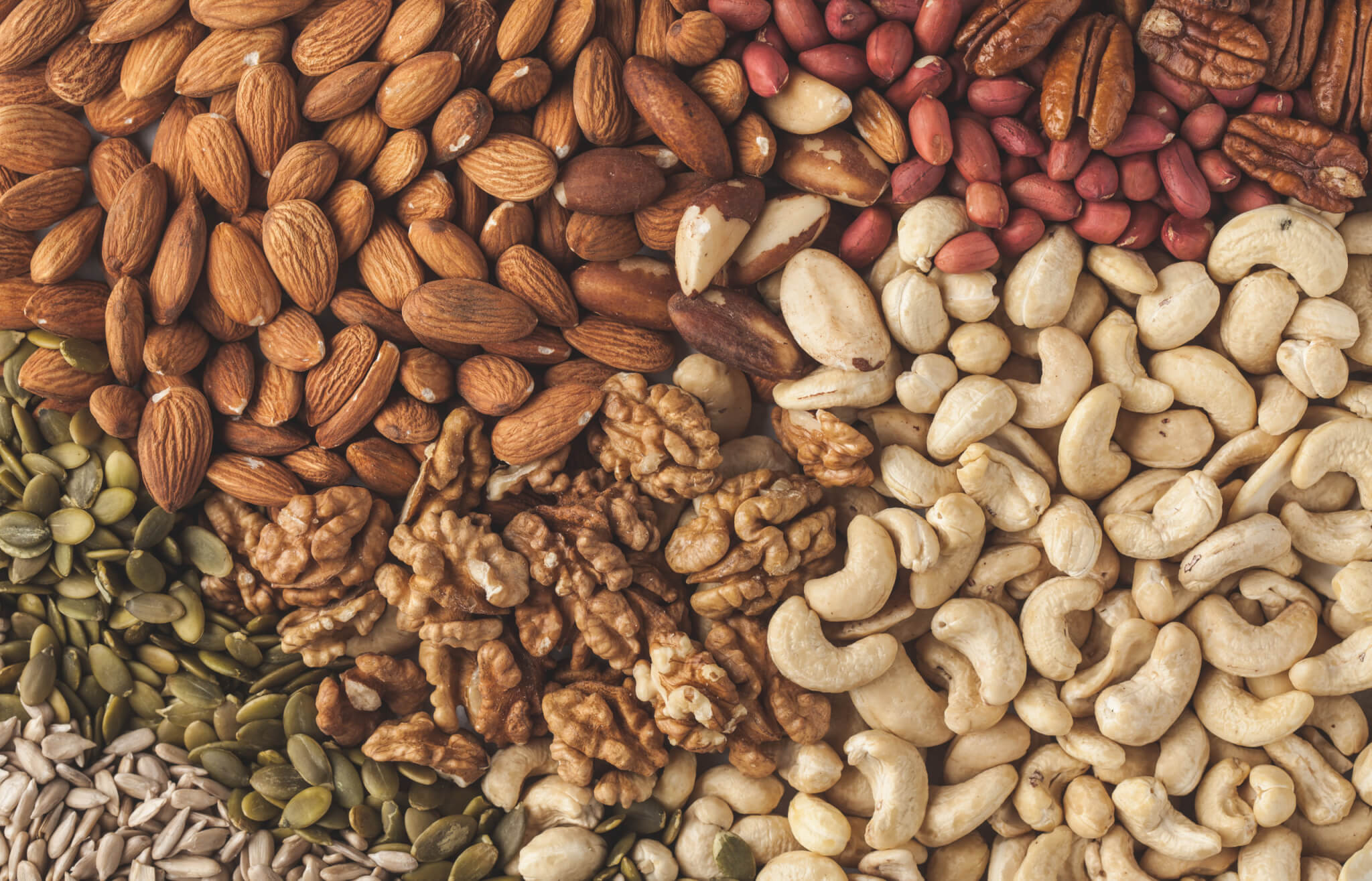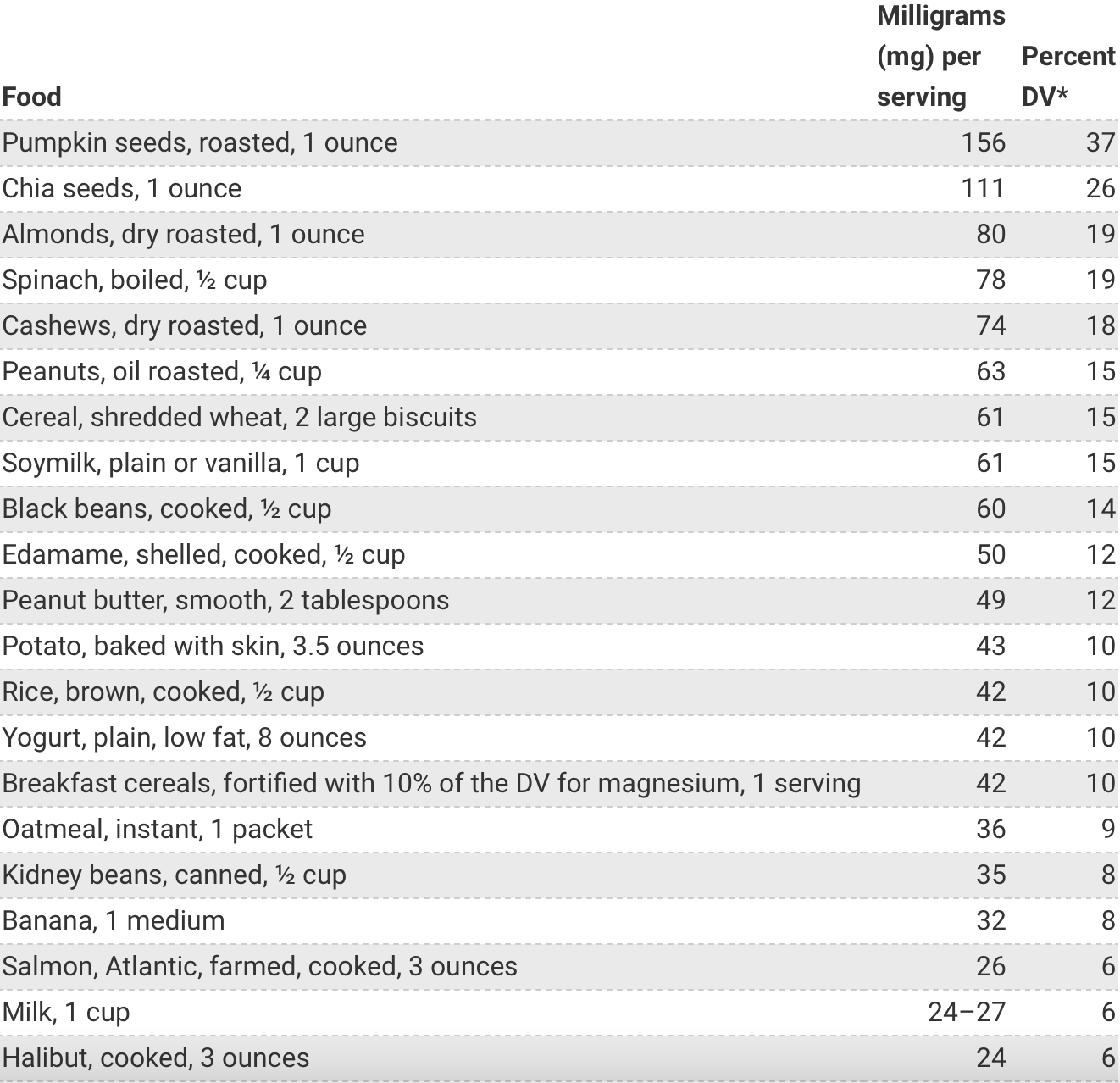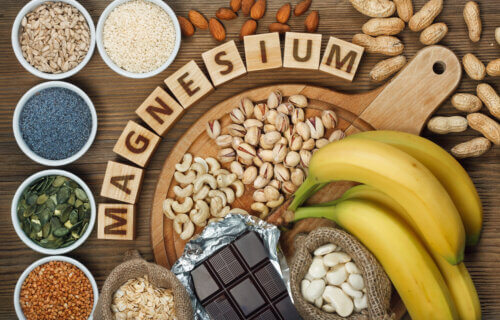CANBERRA, Australia — Forget the apple – A higher dose of magnesium each day may keep dementia at bay, according to new findings from Australian National University. Study authors report more magnesium on a daily basis leads to stronger brain health as we age. Moreover, eating lots of magnesium-rich foods (spinach, pumpkin seeds, nuts) may also help lower the risk of dementia.
This was no small project either, as it encompassed over 6,000 cognitively healthy participants in the United Kingdom between ages 40 to 73 years old. Researchers found people who consume more than 550 milligrams of magnesium each day show a brain age approximately one year younger by the time they reach 55 years old in comparison to someone else with a normal magnesium intake of roughly 350 milligrams a day.
“Our study shows a 41 per cent increase in magnesium intake could lead to less age-related brain shrinkage, which is associated with better cognitive function and lower risk or delayed onset of dementia in later life,” lead author and PhD researcher Khawlah Alateeq, from the ANU National Centre for Epidemiology and Population Health, says in a media release. “This research highlights the potential benefits of a diet high in magnesium and the role it plays in promoting good brain health.”
The amount of people on a global scale who will be diagnosed with dementia in the future is estimated to more than double over the next few decades; from 57.4 million in 2019 to 152.8 million by 2050. If this forecast comes true, it would place an incredible strain on health and social services, as well as the global economy.

“Since there is no cure for dementia and the development of pharmacological treatments have been unsuccessful for the past 30 years, it’s been suggested that greater attention should be directed towards prevention,” study co-author Dr Erin Walsh, who is also from ANU, explains. “Our research could inform the development of public health interventions aimed at promoting healthy brain aging through dietary strategies.”
Start young when it comes to incorporating magnesium in diet
Study authors theorize a higher intake of magnesium in one’s diet beginning at a young age may safeguard against both neurodegenerative diseases and cognitive decline by the time we reach middle-age.
“The study shows higher dietary magnesium intake may contribute to neuroprotection earlier in the aging process and preventative effects may begin in our 40s or even earlier,” Ms Alateeq concludes. “This means people of all ages should be paying closer attention to their magnesium intake.
“We also found the neuroprotective effects of more dietary magnesium appears to benefit women more than men and more so in post-menopausal than pre-menopausal women, although this may be due to the anti-inflammatory effect of magnesium,” she adds.
Study subjects filled out a series of surveys on five occasions over a period of 16 months. Those responses were then used to calculate daily magnesium intake among participants, based on 200 different foods with varying portion sizes. The research team focused specifically on magnesium-rich foods like leafy green vegetables, legumes, nuts, seeds, and whole grains.
Here’s a list of magnesium-rich foods, according to the National Institutes of Health.

The study is published in the European Journal of Nutrition.

It’s good to have this information and to figure out how much our diet affects our overall health! We need this kind of info rather than all the damn drug ads that we get everywhere we turn!!!